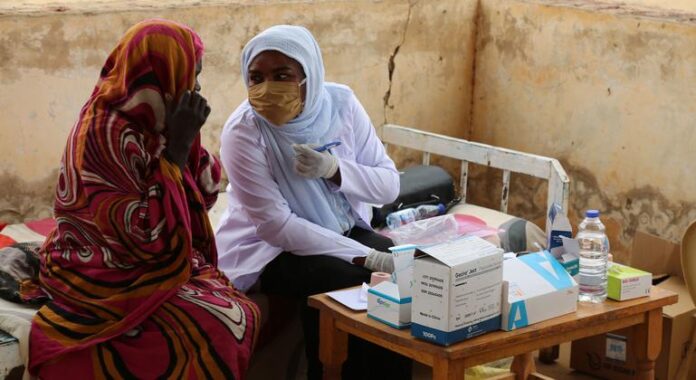- EIB Global and Kazakhstan Housing Company sign accord to promote energy-efficient homes in country.
- Agreement comes in wake of first EU-Central Asia summit.
- The company will also benefit from technical assistance provided under the joint EIB and GIZ initiative, FELICITY II.
The European Investment Bank’s development arm (EIB Global) and state-owned Kazakhstan Housing Company JSC are teaming up to increase the number of energy-efficient and sustainable homes in Kazakhstan.
EIB Vice-President Kyriacos Kakouris and Altay Kuzdibayev, chairman of the management board of Kazakhstan Housing Company, signed a memorandum of understanding today in the Kazakh capital Astana for financing to build energy-efficient homes.
“We will work closely with Kazakhstan Housing Company to explore financing opportunities for housing projects that meet high energy-efficiency standards,” said EIB Vice-President Kakouris. “The agreement reflects a commitment by the European Union and the bank to deepening our strategic partnership with central Asia. Contributing to the sustainable future of the region through initiatives like this one is a high priority for us.”
This new accord is part of an initiative – FELICITY II Cities Advisory Facility – undertaken jointly by the EIB and German development agency Deutsche Gesellschaft für Internationale Zusammenarbeit (GIZ). The initiative is supported by the International Climate Initiative (IKI) of the Federal Ministry for Economic Affairs and Climate Action of Germany to support low-carbon investments in countries in eastern Europe and central Asia.
“Improving people’s quality of life and developing a modern, comfortable urban environment are the key priorities of Kazakhstan Housing Company. Signing a memorandum with EIB Global is an important step in the implementation of long-term international cooperation initiatives that are in line with both national priorities and global climate challenges. We are confident that this partnership will contribute to the formation of a new standard of housing and the development of sustainable and energy efficient housing projects in Kazakhstan,” said Kazakhstan Housing Company Management Board Chairman Kuzdibayev.
The memorandum of understanding builds on the first EU-Central Asia summit held in April 2025, when government leaders pledged to strengthen ties between the two regions. During the summit, EIB Global announced plans to expand its strategic investments in sustainable development across central Asia.
GIZ, which was represented at today’s signing event in Astana, , in cooperation with the German Energy Agency (dena) will offer technical assistance to Kazakhstan Housing Company under FELICITY II.
Cooperation between the EIB and Kazakhstan Housing Company creates a real opportunity to accelerate the low-carbon transformation of Kazakhstan’s building sector, which accounts for a third of the country’s energy use,” said GIZ Project Director André Fabian. “It will also stimulate the market for energy-efficient construction and foster the uptake of innovative technologies and services.” The signing took place during the Astana International Forum, an annual conference that promotes global dialogue and attracts leaders of governments, international organisations, businesses and academic institutions. At the Forum, EIB Vice-President Kakouris participated in panel discussions on water security, global trade and climate action.
Background information
About EIB Global
The European Investment Bank (ElB) is the long-term lending institution of the European Union, owned by the Member States. It finances investments that pursue EU policy objectives.
EIB Global is the EIB Group’s specialised arm devoted to increasing the impact of international partnerships and development finance, and a key partner of Global Gateway. It aims to support €100 billion of investment by the end of 2027 – around one-third of the overall target of this EU initiative. Within Team Europe, EIB Global fosters strong, focused partnerships alongside fellow development finance institutions and civil society. EIB Global brings the EIB Group closer to people, companies and institutions through its offices across the world.
Photos of EIB headquarters for media use are available here

Kazakhstan to get EIB Global support for energy-efficient homes
©EIB
Download original

Kazakhstan to get EIB Global support for energy-efficient homes
©EIB
Download original

Kazakhstan to get EIB Global support for energy-efficient homes
©EIB
Download original












